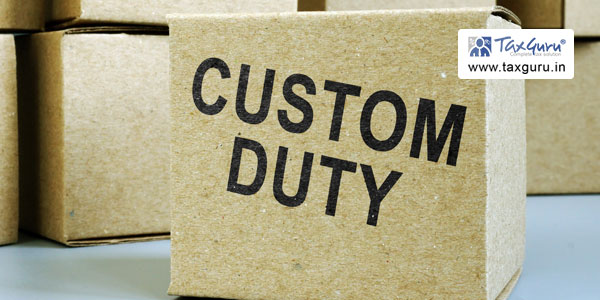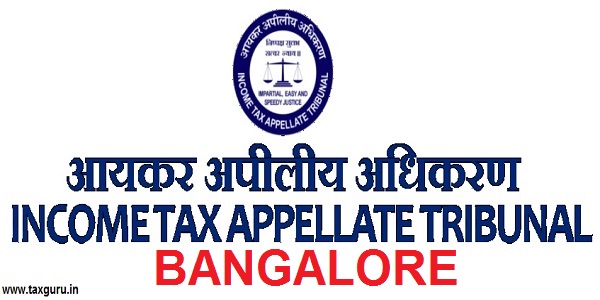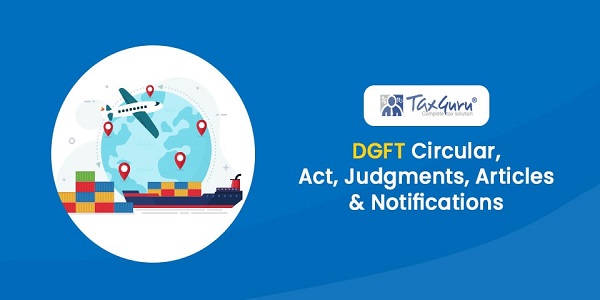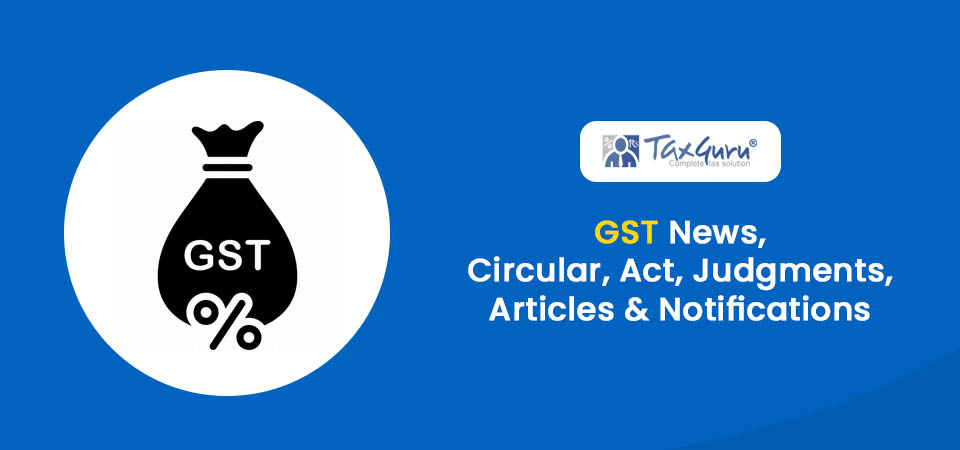India @ 75 has one distinct feature. India has transformed from an agrarian economy to service oriented economy since independence. Also it is now the fastest growing economy. Morgan Stanley expects India’s GDP growth to be @ 7% in financial year 2022-23. It is expected to contribute 28% and 22% to Asian and global economic growth.
According to FICCI estimate, Indian economy is estimated to grow @ 7% in 2022-23 (range 6.5% to 7.3%) lower than the earlier projection of 7.4%, mainly due to current geo-political situation. More so, our economy is not immune to global volatility reflected in inflation and financial markets. Major risks can be seen in rising commodity prices, slow global growth prospects, supply side disruptions etc. This is based on June, 2022 survey.
Central Government has released two tranches of tax devolution of Union Taxes to states aggregating to Rs. 1.16 lakh crore on 10th August, 2022. The release of two tranches has been made together to help the states accelerate capacity expansion by states. The highest amount of Rs. 20928 crore goes to Uttar Pradesh followed by Bihar, Madhya Pradesh, West Bengal, Maharashtra and Rajasthan.
There are no new Notifications from Government side since last three weeks. Rightly so, people are still digesting the overdose of Notifications / Circulars issued between 5-13 July, 2022. The levy of tax on food items has back fired to the extent that opposition parties have even haulted the normal functioning of Parliament. The levy of GST amid already inflation hit economy could have been deferred for the time being.
It has been notified that w.e.f. 01.10.2022, e-invoicing will be mandatory for taxpayers having aggregate turnover exceeding Rs. 10 crores in any year. CBIC has issued yet another set of three Circulars on 03.08.2022 clarifying on various issues of taxability, rates, exemption etc arising out of recent amendments. Their gist of these Circular Nos. 177, 178and 179 can be referred to in this issue of newsletter. It is learnt that CBIC is studying the taxation of crypto eco system.
CBIC recently clarified by way of a press release that gifts of value of more than Rs. 50,000/- made without consideration are subject to GST when made in the course of or furtherance of business. Also, in case of perquisites, supply by the employer to the employee in term of contractual agreement will not attract GST.
GST collection for July, 2022 are out and encouraging. The buoyancy in tax collection continues steadily. The consistency in tax collection of INR one lakh crore plus has now become a new normal, it appears so. The gross GST revenue collected in the month of July 2022 is Rs.1,48,995 crore of which CGST is Rs. 25,751 crore, SGST is Rs. 32,807 crore, IGST is Rs. 79,518 crore (including Rs. 41,420 crore collected on import of goods) and cess is Rs. 10,920 crore (including Rs. 995 crore collected on import of goods). This is second highest revenue since introduction of GST.
For five months in a row now, the monthly GST revenues have been more than Rs. 1.4 lakh core, showing a steady increase every month. The growth in GST revenue till July 2022 over the same period last year is 35% and displays a very high buoyancy.
The CAG of India in its recent report for financial year 2021 has revealed many lacunas in GST administration, refunds, return filing and GSTN functioning. The major pointers are on non-compliance with refund mechanism and related rules, failure of GSTN to check filed data, failure to check / detect suspicious refund claims without documentary evidences, instances of double refunds, ineffective risk based system of return scrutiny, variation between taxable value and declared tax liability etc. The report states that more steps need to be taken to address the issue of non-intrusive e-tax system and system verified ITC flow on principles of invoice matching. Non-sharing data of high risk taxpayers is also a major concern raised.
In one of the meetings at NITI Governing Council meet, Finance Minister emphasized on states to make efforts to boost GST collection. On the other hand, States are demanding a hike rise in share of Central taxes and extensions of GST Compensation Cess.
In one of the crucial judgment, Supreme Court has directed the Union of India / GST Council to ask the States to implement Document Identification Number (DIN) in their states. Centre already uses DIN mechanism which ensures transparency and authentication of documents.
CBIC directed to open portal for two months for transitional credit
- Supreme Court has directed CBIC to open GST portal for two months for claiming transitional credit under GST law for taxpayers.
- Availing transitional credit via TRAN-1 and TRAN-2 form shall open from 1.9.2022 to 31.10.2022 for two months.
- Any aggrieved registered assessee can file the relevant form or revise the already filed form irrespective of whether the taxpayer has filed writ petition before the High Court or whether the case of the taxpayer has been decided by Information Technology Grievance Redressal Committee (ITGRC).
- GSTN has to ensure that there are no technical glitch during the said time.
- The concerned officers are given 90 days thereafter to verify the veracity of the claim/transitional credit and pass appropriate orders thereon on merits after granting appropriate reasonable opportunity to the parties concerned.
- Thereafter, the allowed Transitional credit is to be reflected in the Electronic Credit Ledger.
GST on employee related transactions
CBIC has clarified the following through a Press Release:
- Gifts of value more than Rs 50,000/- made without consideration are subject to GST,
when made in the course or furtherance of business. - Gifts cannot be demanded as a matter of right by the employee and the employee cannot move a court of law for obtaining a gift.
- Supply by the employer to the employee in terms of contractual agreement entered into between the employer and the employee, will not be subjected to GST.
- The input tax credit (ITC) scheme under GST does not allow ITC of membership of a club, health and fitness centre [section 17 (5) (b) (ii)]. If such services are provided free of charge to all the employees by the employer then the same will not be subjected to GST, provided appropriate GST was paid when procured by the employer.
- No GST will be payable for free housing to the employees, when the same is provided in terms of the contract between the employer and employee and is part and parcel of the cost-to-company (C2C).
(Source: CBIC Press Release dated 10.07.2022)
GST collection in July, 2022
- 1,48,995 crore gross GST revenue has been collected in the month of July 2022.
- GST Revenue collection for July, 2022 is second highest ever and 28% higher than the revenues in the same month last year.
- This is second highest revenue since introduction of GST.
- The gross GST revenue collected in the month of July 2022 is
1,48,995 crore of which CGST is Rs. 25,751 crore, SGST is Rs. 32,807 crore and IGST is Rs. 79,518 crore. - For five months in a row now, the monthly GST revenues have been more than Rs. 1.4 lakh core, showing a steady increase every month. The growth in GST revenue till July 2022 over the same period last year is 35% and displays a very high buoyancy.
- The top states with higher GST Collection growth are smaller states like Ladakh, Pondicherry, Lakshdweep, Goa. The laggards include Daman & Diu, Tripura and Bihar. In bigger states, it ranges from 15-40 percent.
(Source: MoF Press Release ID 1846881 dated 01.08.2022)
Mandatory E-invoice for INR 10 crore turnover
- CBIC has reduced mandatory e-invoicing threshold limit from INR 20 crore to INR10 crore of aggregate turnover w.e.f. 01.10.2022.
- E-invoicing will be mandatory if aggregate turnover exceeds INR 10 crore in any financial year from 2017-18 and onwards.
- The present threshold limit for mandatory e-invoices is INR 20 crore
- Necessary amendment has been made in Notification No. 13/2020-CT dated 21.03.2020 w.e.f. 01.10.2022.
(Source: Notification No. 17/2022-CT dated 01.08.2022)
New Clarifications on GST from CBIC
Based on GST Council’s recommendations in 47th Council meeting, various notifications have been issued in July, 2022. CBIC has now clarified on various issues of taxability exemption, rate etc vide three Circulars issued on 03.08.2022.
GST applicability on liquidated damages, compensation and penalty arising out of breach of contract or other provisions of law, GST on application fee charged for entrance / migration by educational institutions, storage & warehousing of cotton, selling of space for advertisement, PLC charges, honorarium to guest anchors, additional toll fee, IVF services, sales of developed plots of land, renting of motor vehicles etc.
- Declared services, liquidated damages, cancellation charges, cheque dishonor fee, penalties, compensation for not collecting toll, salary forfeiture etc.
- Electric vehicles, treated sewerage water, stones, mangoes, fly ash bricks etc.
(Source: Circular No. 177, 178 and 179-GST dated 03.08.2022)
Use of DIN by States
- Supreme Court has directed the Union of India and GST Council to issue an advisory to all the States for implementation of Document Identification Number (DIN) in respect of all the notices and communications being sent or issued by State GST offices.
- It has also directed that use of DIN in all GST related documents be implemented at the earliest possible.
- Electronic generation DIN is already in use by the CGST officers which provides authenticity to the documents / communications issued by the Department.
States like Kerala and Karnataka already use DIN.

New Functionality in GSTR-3B
- GSTN has enabled a new functionality in GSTR-3B return for reporting supplies under section 9(5) of CGST Act, 2017 w.e.f. 01.08.2022.
- For this, Table 3.1.1 has been added on 3-B return.
- As per section 9(5), an Electronic Commerce Operator (ECO) is required to pay tax on the supply of certain services notified by the government such as Passenger Transport services, Accommodation services, Housekeeping Services & Restaurant Services, if such services are supplied through ECO.
- For reporting of such supplies, a new Table 3.1.1 has been added in GSTR-3B as per Notification No. 14/2022 – Central Tax dated 05th July 2022 wherein both, ECOs and registered persons can report their supplies made under section 9(5) respectively.
- Accordingly,
- An ECO is required to report supplies made u/s 9(5) in Table 3.1.1(i) of GSTR-3B and shall not include such supplies in Table 3.1(a) of GSTR-3B. The applicable tax on such supplies shall be paid by ECO in Table 3.1.1(i) of GSTR-3B in cash only and not by ITC.
- A registered person who is making supplies of such services as specified u/s 9(5) through an ECO, shall report such supplies in Table 3.1.1(ii) and shall not include such supplies in Table 3.1(a) of GSTR-3B. The registered person is not required to pay tax on such supplies as the ECO is liable to pay tax on such supplies.
(Source: GSTN)
NIL GSTR-1 Returns
- GSTN has introduced a new options to file a ‘NIL’ GSTR-1 return by way of selecting the check box.
- There will be no need to go through the process of generating the summary.
- It may be noted that one can file NIL GSTR-1 form if:
- No outward supplies (including supplies on which tax is to be charged on reverse charge basis, zero rated supplies and deemed exports) during the month or quarter for which the form is being filed for.
- No amendments to be made to any of the supplies declared in an earlier form
- No credit or debit notes to be declared / amended
- No details of advance received for services is to be declared or adjusted.
(Source: GSTN)



























Where to show the supplies of section 9(5) in GSTR-1 which will be further auto populated in new Table 3.1.1 of GSTR 3B ?
Dear Sir,
As per Section 9(5) of CGST Act, Electronic Commerce Operator (ECO) is required to pay tax on supply of services such as Passenger Transport Service, Accommodation services, Housekeeping Services & Restaurant Services, if such services are supplied through ECO.
As per circular No. 167/23/2021-GST dated 17.12.2021, a clarification had been issued as regard reporting of services, value and tax liability etc in the GST return. The relevant extract is as follows:
A number of other services are already notified under section 9(5). In respect of such services, ECO operators are presently paying GST by furnishing details in GSTR 3B. The ECO may, on services notified under section 9 (5) of the CGST Act,2017, including on restaurant service provided through ECO, may continue to pay GST by furnishing the details in GSTR 3B, reporting them as outward taxable supplies for the time being. Besides, ECO may also, for the time being, furnish the details of such supplies of restaurant services under section 9(5) in Table 7A(1) or Table 4A of GSTR-1, as the case maybe, for accounting purpose.
Registered persons supplying restaurant services through ECOs under section 9(5) will report such supplies of restaurant services made through ECOs in Table 8 of GSTR-1 and Table 3.1 (c) of GSTR-3B, for the time being.
THANK YOU FOR THE VALUABLE INFORMATION